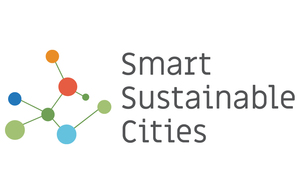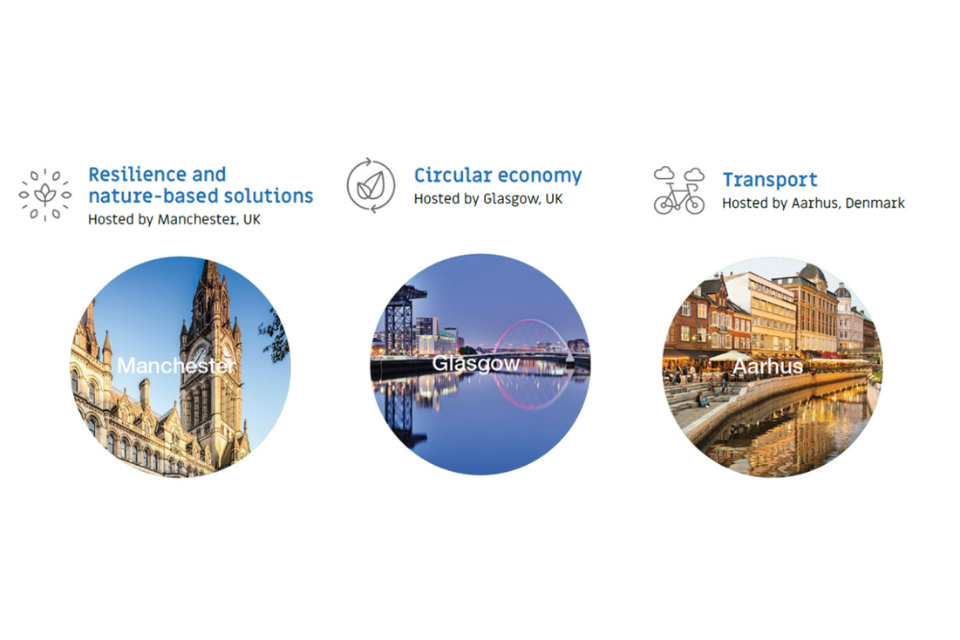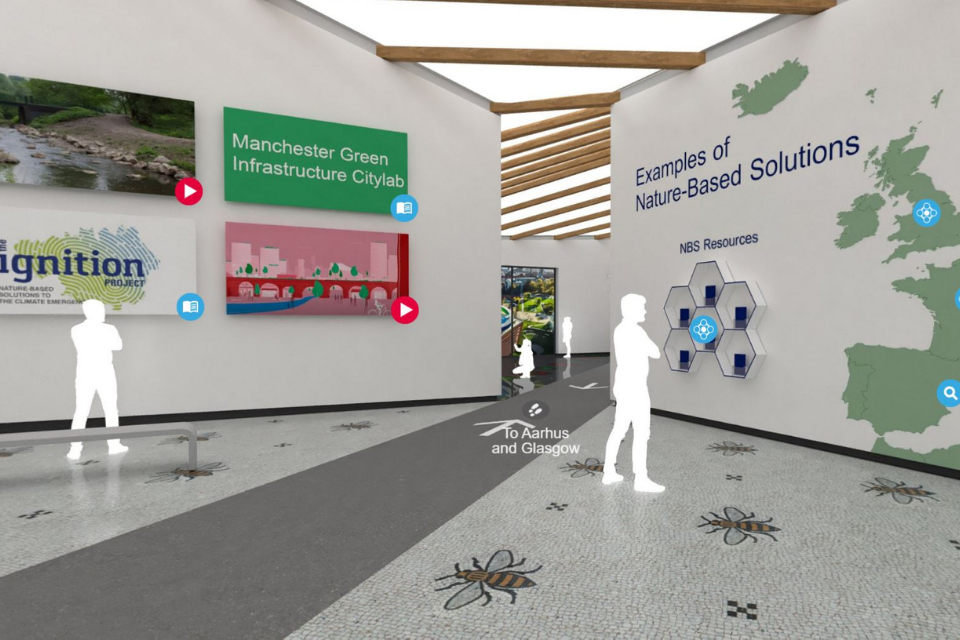FCDO Smart Sustainable Cities project: 2021 edition
The FCDO Smart Sustainable Cities project is led by the British Embassy Madrid and funded by the Prosperity Fund. It brings together selected European and UK cities to showcase best practice and provides opportunities for knowledge sharing and networking.

Sustainble cities logo
Ahead of COP26 in Glasgow in November, the 2021 edition of the Smart Sustainable Cities project aimed to raise climate ambition and promote effective implementation of city-level decarbonisation projects in three key areas:
- resilience and nature-based solutions
- circular economy
- sustainable transport
Due to COVID-19 restrictions this year, the team delivered seven virtual working sessions collaborating closely with other government departments such as Department for International Trade (DIT), Department for Business, Energy and Industrial Strategy (BEIS) and the COP 26 Unit, building a group to tackle climate action and begin a shared journey in the build up to COP26.
The workshops brought together cities from across Europe and were hosted virtually by leading cities in each key area:
- Manchester City Council for resilience and nature-based solutions
- Glasgow City Council for circular economy
- Aarhus City Council (Denmark) for sustainable transport
Our delivery partner in this project was Arup UK.

Sustainable Cities Themes
The concept for this year’s edition aimed to create a sense of community through a shared journey using a ‘Share, Solve and Support’ structure. This concept was delivered through two sessions per city (Share and Solve) and a joint final session (Support) to bring all participants together and allow for cross-fertilisation of ideas.
Virtual workshops led by Glasgow, Manchester and Aarhus (Denmark) City Councils encouraged delegates to explore the needs, resources and opportunities for cities to drive support for increased climate action. A final session on 16 March brought all the partners together for a final session to raise ambition as part of the Race to Zero campaign. Furthermore, the workshops also introduced participants to opportunities for collaborating with city-led projects across Europe, including the future Horizon 2020 Taskforce and Grow Green Cities programme (led by Manchester), “streetscaping” or re-orienting streets from cars to people (led by Barcelona and Arhus), the Green goods delivery (led by Gothenburg and Ljubljana) and the Glasgow Circular Economy Programme.

Manchester city virtual
The Smart and Sustainable Cities project has cemented the UK’s reputation as a climate change leader, while building stronger bilateral and city-to-city links between the participants. For example, Glasgow, Dublin, Bilbao and Amsterdam are working together to strengthen their circular economy strategies. Aarhus and Gothenburg are already working together and have presented at each other’s local city-council meetings, highlighting the work each city is doing on urban logistics and transformations. This collaboration will continue to ensure constant learning from each other’s experiences. This year’s programme also enabled Glasgow and Manchester City Councils to showcase their innovative solutions to European audiences ahead of their presence at COP26. They will now look to capitalise on a range of new opportunities to collaborate with other European cities through Horizon Europe programmes.
High-profile speakers at the workshops included:
- Emma Hopkins, Her Majesty’s Ambassador to Denmark
- FCDO Europe Director, Sarah Taylor
- Head of the Europe Strategy Department, Hazel Cameron
- COP26 Unit Cities and Regions Engagement Lead, Christine Mosedale
- BEIS European lead for the COP26 Zero Emission Vehicles campaign, Isobel Neale
- Manchester City Council Councillor, Angeliki Stogia
- Manchester City Council Strategic Director of Growth & Development, Louise Wyman
- Glasgow City Council Councillor, Susan Aitken
- Glasgow City Council COP26 Stakeholder Manager, Duncan Booker
- former Copenhagen Mayor, Morten Kabell
FCDO and Department for International Trade
The FCDO has worked closely with the Department for International Trade (DIT) to deliver this project.
International delegates can learn about the wealth of UK expertise, both academic and commercial, in the smart city sector through the Smart Cities Directory and on the Virtual Engage Space. They can also consider how to work with UK smart city companies to achieve their sustainability requirements.
Please email Susannah Fairbairn for more information on the UK’s smart cities ecosystem. Susannah would be delighted to introduce you to UK companies and facilitate meetings and demonstrations.
Further information
If you would like to learn more about this initiative, please contact the Prosperity Team at the Madrid Hub, Estibalitz Morras, Prosperity Programme Manager
Previous editions of Smart Sustainable Cities
The Lunar Works designed & delivered the SSC editions in Manchester, Glasgow and Madrid. The Lunar Works & Future Earth designed and delivered the inaugural programme in London and Bristol.”
Glasgow: December 2019
Key themes included driving innovation in the circular economy; systemic change across and within sectors; experiencing Glasgow city showcase initiatives and connecting with other city experts for practical knowledge.
Madrid: February 2019
Key themes included transforming mobility in the low carbon city and smart, healthy solutions at city-system scales.
London: March 2018
Key themes included data management / data driven economy, common ticketing systems, e-mobility and the Internet of Things.
Bristol: February 2018
Key themes included transport, energy efficiency in buildings, smart grids and renewable energy and the circular economy.
Manchester: December 2018
Key themes included smart electricity, heat, cooling and storage networks / grids.